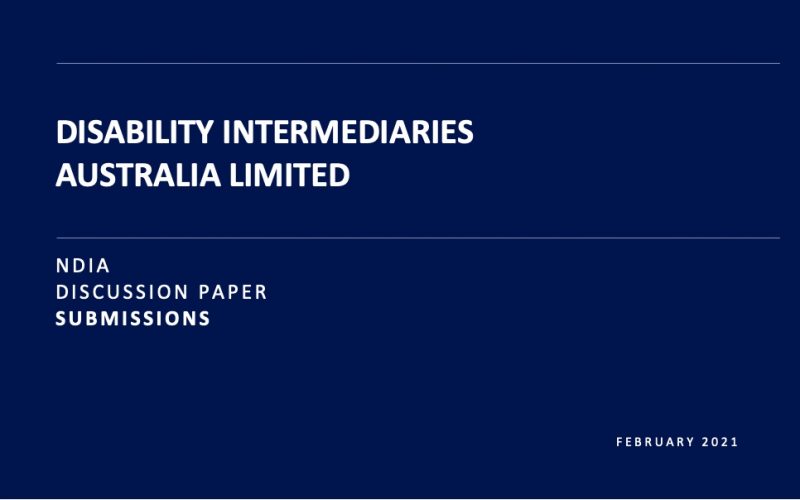Disability Intermediaries Australia responds to the NDIA Discussion Papers
Disability Intermediaries Australia (DIA) is pleased to inform our members that we provided submissions and responses to the following NDIA Discussion Papers on 23rd February 2021:
- Access and Eligibility with Independent Assessment
- Planning Policy for Personalised Budgets and Plan Flexibility
- Supporting Young People and their Families Early to reach their full potential
Our responses were evidence based, drawing on market insights from our extensive member network and market driven research.
A well-functioning market of supports and services is one of the foundational pillars of the NDIS. It is critical to realising the vision of the Scheme, whereby people with disability are living independent yet connected lives and empowered through having choice and control over the supports they engage.
DIA are thought leaders in understanding and building of Intermediaries (Support Coordination and Plan Management) role and function within the market. At their core, Intermediaries support participants to navigate, guide, capacity build and make self-directed decisions whilst overseeing and monitoring Participant service providers.
DIA acknowledges the considerable work to date undertaken by the Department of Social Services (DSS), the NDIS Quality and Safeguards Commission (NDIS Commission) and the NDIA to support the development of the market.
On the submissions, DIA Chief Executive Officer, Mr Jess Harper said:
“DIA welcomes the opportunity to provide these submissions to inform the NDIA on its direction forward.
Whilst DIA is encouraged by the NDIA’s intent to reduce barriers and costs to access the NDIS and at the same time make the planning process fairer, we are not convinced that such a blunt instrument and ‘one-size-fits-all’ approach is the best way forward.
DIA continues to have concerns about functional capacity assessments being conducted for people with a disability:
- Outside of their support network / treating healthcare professional;
- By assessors who is unlikely to have detailed knowledge of the persons disability and its complexities;
- By assessors whom will have between 1-4 hours to make their assessment;
- With no ability for a participant to choose their assessor from a market of approved providers; and
- With no ability for a participant to have the assessment rejected, reviewed or appealed.
There are a range of GAPS that the NDIA is yet to respond to. DIA would welcome being a part further consultations.”
DIA invites the NDIA and NDIS Quality and Safeguards Commission to work collaboratively together on the next stages of the proposed changes, along with DIA’s development and implementation of Sector Service Standards for Support Coordination and Plan Management.

